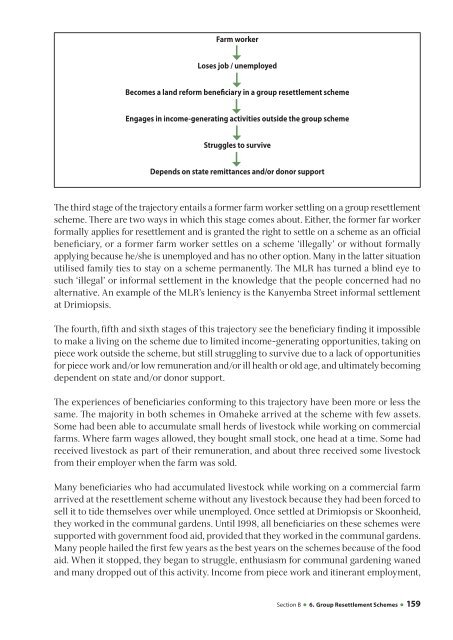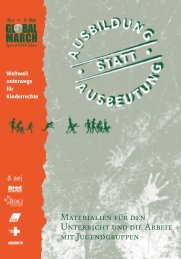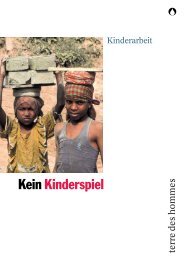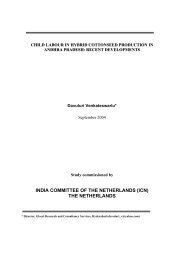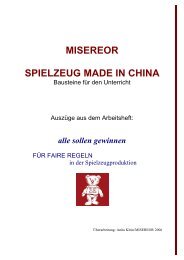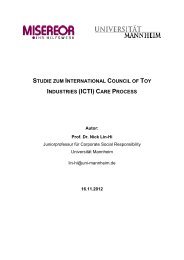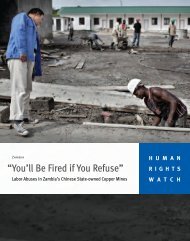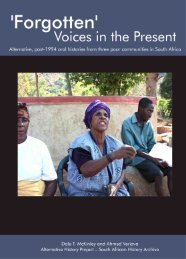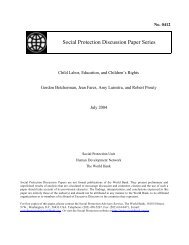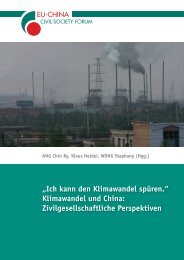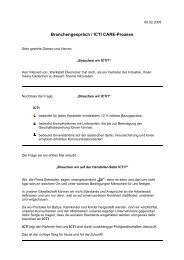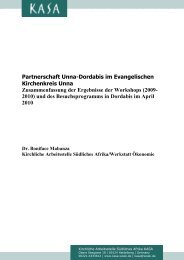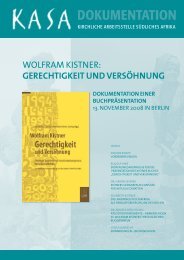Namibia country report
Namibia country report
Namibia country report
- No tags were found...
Create successful ePaper yourself
Turn your PDF publications into a flip-book with our unique Google optimized e-Paper software.
Farm workerLoses job / unemployedBecomes a land reform beneficiary in a group resettlement schemeEngages in income-generating activities outside the group schemeStruggles to surviveDepends on state remittances and/or donor supportThe third stage of the trajectory entails a former farm worker settling on a group resettlementscheme. There are two ways in which this stage comes about. Either, the former far workerformally applies for resettlement and is granted the right to settle on a scheme as an officialbeneficiary, or a former farm worker settles on a scheme ‘illegally’ or without formallyapplying because he/she is unemployed and has no other option. Many in the latter situationutilised family ties to stay on a scheme permanently. The MLR has turned a blind eye tosuch ‘illegal’ or informal settlement in the knowledge that the people concerned had noalternative. An example of the MLR’s leniency is the Kanyemba Street informal settlementat Drimiopsis.The fourth, fifth and sixth stages of this trajectory see the beneficiary finding it impossibleto make a living on the scheme due to limited income-generating opportunities, taking onpiece work outside the scheme, but still struggling to survive due to a lack of opportunitiesfor piece work and/or low remuneration and/or ill health or old age, and ultimately becomingdependent on state and/or donor support.The experiences of beneficiaries conforming to this trajectory have been more or less thesame. The majority in both schemes in Omaheke arrived at the scheme with few assets.Some had been able to accumulate small herds of livestock while working on commercialfarms. Where farm wages allowed, they bought small stock, one head at a time. Some hadreceived livestock as part of their remuneration, and about three received some livestockfrom their employer when the farm was sold.Many beneficiaries who had accumulated livestock while working on a commercial farmarrived at the resettlement scheme without any livestock because they had been forced tosell it to tide themselves over while unemployed. Once settled at Drimiopsis or Skoonheid,they worked in the communal gardens. Until 1998, all beneficiaries on these schemes weresupported with government food aid, provided that they worked in the communal gardens.Many people hailed the first few years as the best years on the schemes because of the foodaid. When it stopped, they began to struggle, enthusiasm for communal gardening wanedand many dropped out of this activity. Income from piece work and itinerant employment,Livelihoods after Section Land Reform: B ● 6. Group <strong>Namibia</strong> Resettlement <strong>country</strong> <strong>report</strong> Schemes (2010) ● 159


